The Waffle Boys’ Journey: Friendship, Supercomputing, and Life Beyond Borders
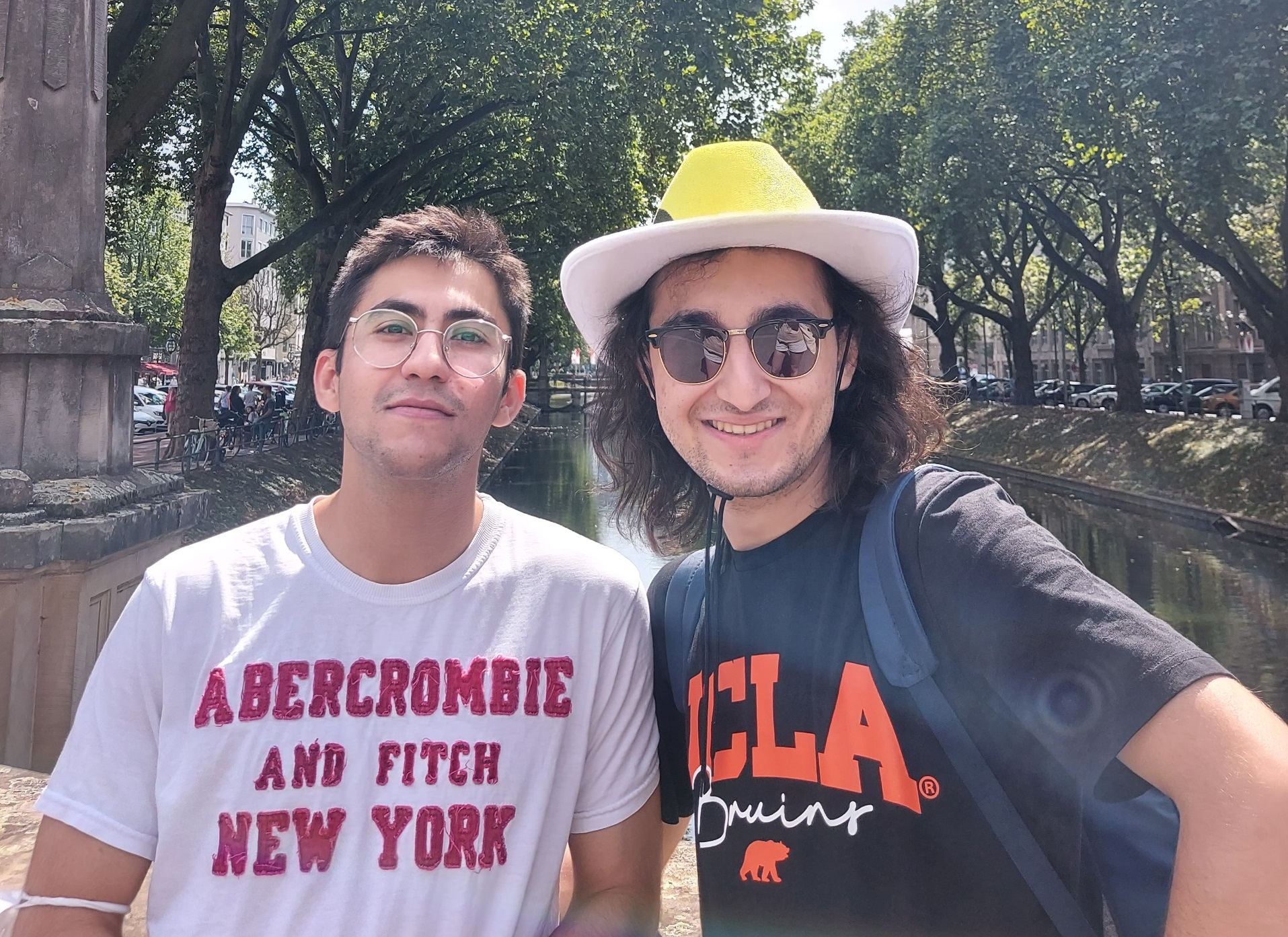
👋 INTRODUCTION
Let’s start with a little intro. Could you each tell us who you are — where you’re from, what you’re studying, and what got you interested in computing or technology?
U: Hello, my name is Umut Çilesiz. I am 25 years old and from Istanbul, Turkey. I graduated from Boğaziçi University in 2024 with a double major in Chemistry and Physics. I am currently pursuing my PhD at Tufts University under the supervision of Prof. Dr. Yu Shan Lin. In the summer of 2021, while I was looking for an internship in one of the labs at my university, Yiğit suggested that I check out Prof. Dr. Viktorya Aviyente’s lab. After completing my first internship that summer, I continued working with Prof. Aviyente until I graduated.
Y: Hello, my name is Yiğit Ertan. I’m from Izmir, Turkey. I obtained my Bachelor’s degree in Chemistry from Boğaziçi University, and I am currently pursuing my master’s degree in Chemistry with Prof. Şaron Çatak at the same institution. I have been accepted to Purdue University for my PhD and will be moving to the US in Fall 2025. I have always been more interested in the theoretical side of chemistry than laboratory work. After seeing Umut’s research with Prof. Viktorya Aviyente, I was inspired and applied for an internship with Prof. Şaron Çatak who has continued to be my advisor to this day.
✈️ ARRIVING IN BRUSSELS
What made you decide to go on Erasmus — and why did you choose Brussels and the Vrije Universiteit Brussel (VUB) in particular?
U: When I first started my undergraduate education, I wasn’t planning to go on an Erasmus exchange. Over the years, I heard many interesting stories from people who had participated. They told me they had met many people and formed long-lasting friendships along the way. That inspired me to apply for an Erasmus exchange. To be honest, when I was applying, I knew very little about Brussels or Belgium. I was mostly focused on reviewing lab groups and their research areas, as I was applying for a summer internship in 2022.
Y: Since beginning my freshman year, I thought about participating in the Erasmus+ programme, not necessarily as an intern though. I asked Prof. Çatak and Prof. Aviyente for their input on good research groups and checked them out one by one. ALGC
stood out to both Umut and me the most, so we decided to email Prof. De Proft. I prioritised the internship experience more than the location, so discovering how magnificent and centrally located Brussels was became the cherry on top.
What were your first few days in Brussels like? Do you remember a moment that really stuck with you — good, strange, or surprising?
U: I was really excited, as it would be my first time visiting another country. I remember that during the first week, we mostly walked around since we both enjoy exploring new places. We stayed in a hotel for one night before moving into our dorm in Jette. When we applied, we thought our dorm rooms would be furnished, but that turned out not to be the case. We had to spend the night sleeping on just the bedframe.
Y: We had to sleep on the bedframe while trying to avoid the cold, as it was really cold at night. It became a core memory for us, and we still joke about it.
I had never been abroad prior to my Erasmus experience, so it was a special experience for me. To learn the city properly, we walked a lot during the early days, as I believe that it is the best way to experience a city. Immediately after landing in Brussels, we tried the famous local foods: waffles and frites.
💻 GETTING INTO SUPERCOMPUTING
What was it like stepping into the supercomputing environment at VUB for the first time? Was it exciting, intimidating, or something else?
U: For me, stepping into the supercomputing environment was smooth. I was already doing similar calculations before I started working at VUB, so I was familiar with the syntax. However, I believe that even if I had been inexperienced, I wouldn’t have had any trouble, as dr. Xavier Deraet and all the other members of the group were very kind and helpful to us.
Y: Prior to the internship, I had not used such an extensive HPC system. I had access to a small departmental cluster and ran minor calculations locally. Setting up the SSH configuration and logging into Hydra for the first time was an exciting moment for me; I felt that I was in the big leagues now. Xavier introduced us to Hydra really well.
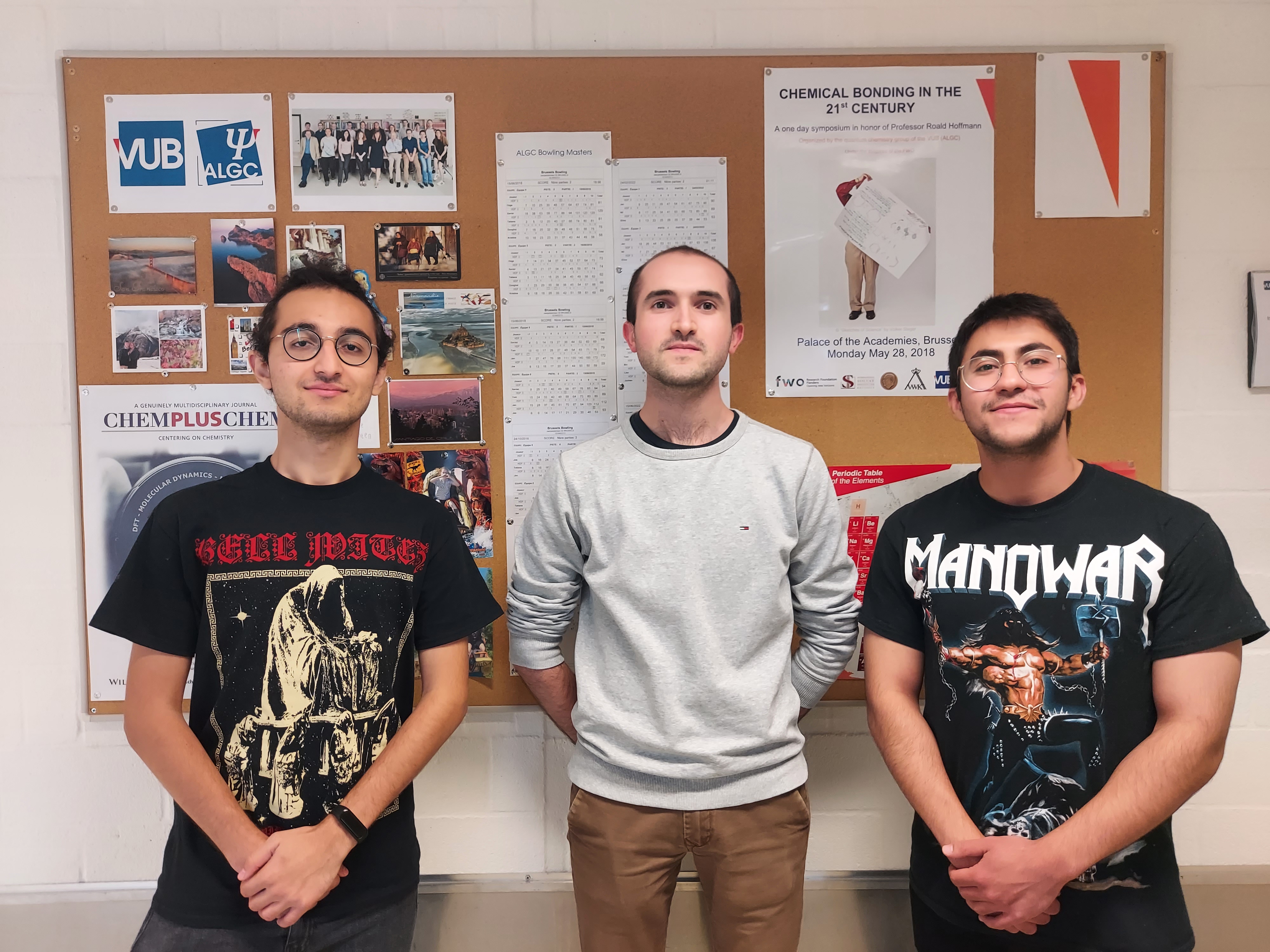
Were there any "wow" moments when working with the infrastructure — something that amazed you or changed how you thought about computing?
U: Before I came to VUB, I was mostly submitting jobs on our university’s cluster, called “Dirac.” Dirac is primarily used by undergraduates and doesn’t offer significant computational power. I remember once submitting jobs using a PhD student’s TRUBA account, and it was incredibly fast. The real “wow” moment for me came when I realised that the account provided to me had similar, or perhaps even better, computational power. I was amazed by how quickly the calculations were completed.
Y: I had only basic computer knowledge—just enough for daily tasks and gaming. After spending some time on HPC systems and using Unix commands, I became more curious about computer architecture and switched to Linux on my PC. Over time, I became
more interested in HPC software and hardware as I am astonished at the number of heavy calculations they do each second.
How did VUB's infrastructure and approach differ from what you were used to in Turkey — both technically and in terms of how you learned or worked?
U: The process of connecting to the cluster and submitting jobs was quite similar. The only difference I noticed was that two-factor authentication (2FA) was required to connect to the cluster at VUB, which felt more secure. I believe this level of security should be implemented for all remote connections.
Y: The first thing that stood out to me was the distinction between the home directory and the scratch directory; such a separation did not exist on the Boğaziçi cluster I had used. For my master’s thesis, I am currently using TUBITAK ULAKBIM, the Turkish partner of EuroCC, which has a very similar HPC architecture to Hydra. Because of my extensive experience on Hydra, I did not have any trouble using it.
💡 LEARNING & GROWING
What were some of the biggest things you learned — not just technically, but personally — during your Erasmus stay?
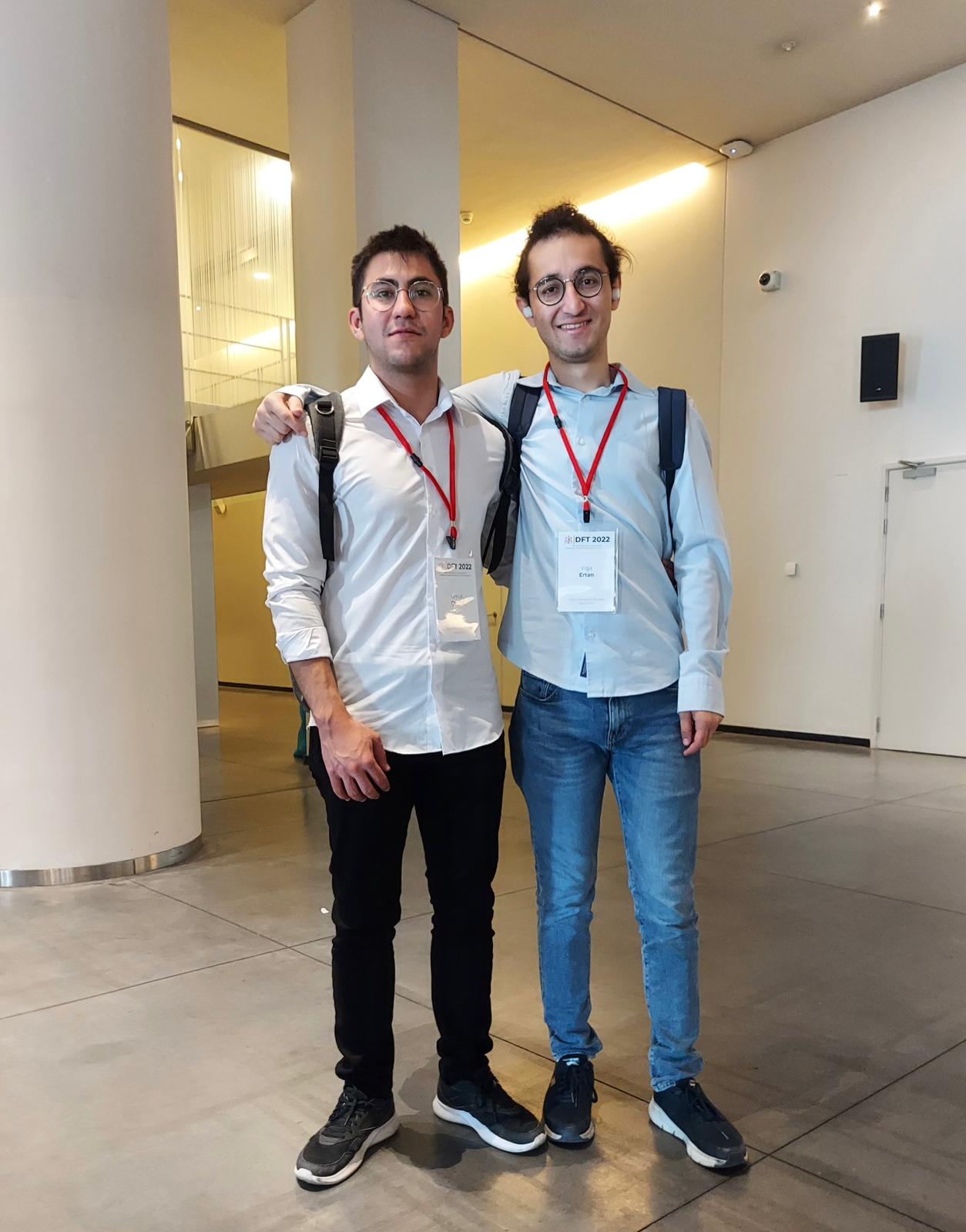
U: During my Erasmus stay, I learned how to work independently in a research environment, and now, my research group has members all around the world. This experience has helped me to better communicate scientific ideas within an international group. Personally, I learned how to adapt to new environments and welcome cultural differences. I became more confident in myself.
Y: This was the first major research project that I conducted, so it was all new for me. Xavier and Prof. De Proft guided me in constructing a workflow for doing a computational chemistry project and doing research. I joined my research group during the COVID era, so I did not know how a research group worked. I worked alone mostly. When I saw how smoothly ALGC worked, I immediately understood why modern science progresses with research groups instead of individuals. I learned the importance of communication and collaboration.
Are there any habits, mindsets, or ways of thinking that you picked up at VUB or in Belgium that you still carry with you today?
U: This might be totally unrelated to research, but there were a lot of outdoor workout parks in Belgium. That was when I started to develop a passion for outdoor workouts. Even now, whenever I get the chance, I go to a nearby park. I believe this is a great habit that I developed, especially since I spend most of my day working on a computer, and it helps me stay active, clear my mind, and maintain a healthier balance in my daily routine.
Y: As computational chemistry projects are data-intensive, you generate a large amount of data and outputs—many of which contain errors. I learned to navigate through them by trial and error and developed some useful habits for my future projects. Always create distinct and clearly named folders. Do not instantly delete failed outputs; instead, store them in a separate folder so you can review your errors and improve your next attempt. I also found that taking notes and keeping track of what you did last time is crucial.
Was there a moment where you felt especially proud — maybe when you solved a problem or completed a project you didn’t think you could?
U: Most of the time, I felt proud. It was probably because of how Xavier treated us. I didn’t feel like just a summer intern at ALGC, but rather a true member of the group. He always asked for our opinions and valued our ideas. I felt like a researcher rather than an inexperienced undergraduate student.
Y: The moment towards the end of our project when I combined the reaction modelling data and conceptual density functional theory to shine light on the mysteries behind the reaction was a very profound moment for me. Everything I had worked for came to light.
🌍 LIFE ABROAD & CONNECTIONS
How did living in Belgium shape your view of the world or even your future?
U: At VUB and in Brussels, I had the chance to interact with people from Spain, Czech Republic, Canada, Germany, Belgium, and many other countries. It was both exciting and inspiring to see how individuals from different backgrounds could come together and collaborate effectively. Not just in the context of science, but even during casual lunch conversations, I had the opportunity to experience and appreciate a rich variety of cultures.
Y: Daily life in Brussels gave me a deep sense of connection and appreciation. Though I came back to Europe as a tourist, the experience was not the same—the feeling of having a daily routine and living like a local was really nice. I am still continuing with some of the habits I picked up in Belgium, especially in how much importance I now place on recycling. Though I find it hard to express in words, this experience changed me for the better. I feel like a different person after the Erasmus+ experience.
Did you build any friendships or connections that have lasted beyond the Erasmus period?
U: The city was less crowded than I expected, perhaps because it was summertime, or maybe because I was used to living in Istanbul, which is much more densely populated than Brussels. I was expecting to meet more people, but I still managed to build great friendships with people from ALGC and the dorm, and we are still in contact.
Y: I am still in contact with my friends from ALGC and the dormitory, and I hope to maintain these friendships in the future, as I value them greatly. Everyone was very helpful and made us feel welcome. Similarly, we are still in contact with our friends who came to Boğaziçi University for their Erasmus+ exchange.
Was there a funny or unexpected cultural moment that you now look back on and laugh about?
U: Waffles. A lot of waffles. On weekends, weekdays, whenever we had the chance, we went out to eat some. A German friend from our dorm showed us the best waffle shop in Brussels, and we instantly fell in love. We even ended up with the nickname "waffle boys," which I embraced immediately. I gained some weight during my stay, and I blame the waffles.
Y: Though it was related to Belgium, it actually happened in Germany during our visit. On July 21st, Belgium’s National Day, I bought a hat with the Belgian flag and wore it everywhere that summer. When we visited Germany, I got some confused looks from people trying to figure out why the colours seemed out of order.
🎯 LOOKING AHEAD
Has your Erasmus experience influenced your future — maybe your career goals or where you see yourself working?
U: Before Erasmus, I was already considering a career in a field related to supercomputing, but the Erasmus experience felt like a short introduction for me. It was my first time working full-time on research that used computational tools to understand and describe chemical systems. This opportunity made me realise that I want to build a career in that area, and now I am pursuing a PhD in computational biochemistry.
Y: During my PhD, I will be working in the field of computational chemistry, meaning I will continue to work extensively with HPC systems. As I mentioned before, my curiosity about how HPC systems work has grown, and I want to move more toward method
development and the computational theory side rather than focusing solely on applied chemistry.
Do you see yourself returning to Belgium or working internationally in the future?
U: VUB and ALGC are filled with great and passionate people, and I loved my stay in Belgium. Brussels, in particular, is a great and livable city. If an opportunity to return comes up, I will definitely consider it.
Y: Given the chance, I would certainly love to come back to Belgium. It will always have a special place in my heart. My current retirement plan is to move to Bruges and live a quiet and peaceful life while eating as many waffles as I can.
🎓 ADVICE TO OTHERS
What would you say to another Turkish student who’s thinking about going on an Erasmus, especially one focused on supercomputing?
U: I definitely recommend going on Erasmus if they can afford it. These kinds of experiences not only broaden your perspective on the world but also help you build great friendships, give you a chance to become part of a larger community, and allow you to create unforgettable memories.
Y: I highly recommend joining the Erasmus+ programme. Being in a multicultural environment greatly broadens one’s horizons. Living abroad for a period exposes you to a different culture, and this is an invaluable experience—you cannot learn it from a book. It has to be lived. From an academic perspective, the same applies. Each research group brings a different technique and approach to problems; learning them can make you a better scientist. ALGC approached chemistry from a different perspective
compared to my own group, CCBG. Now, I can utilise both of these perspectives when I come upon a problem.
Any words of encouragement for students who might be scared of stepping out of their comfort zone?
U: Eventually, everyone will have to leave their comfort zone and push their boundaries. My suggestion to students is to do it as early as possible, because that is the only way to truly discover yourself. You will make mistakes, mess things up, get confused, and succeed. In the end, all of these experiences will become the bricks that build you up.
Y: We grow as individuals when we push boundaries. Always playing it safe and staying in our comfort zone can prevent us from experiencing wonderful things. I do not want to invoke FOMO in anyone, but in my opinion, disliking the experience is better than not even giving it a chance and regretting it in the future.
Yiğit and Umut, thank you very much for this nice talk! We wish you all the best in your career and in life!
Published 23/08/2025
Umut Çilesiz
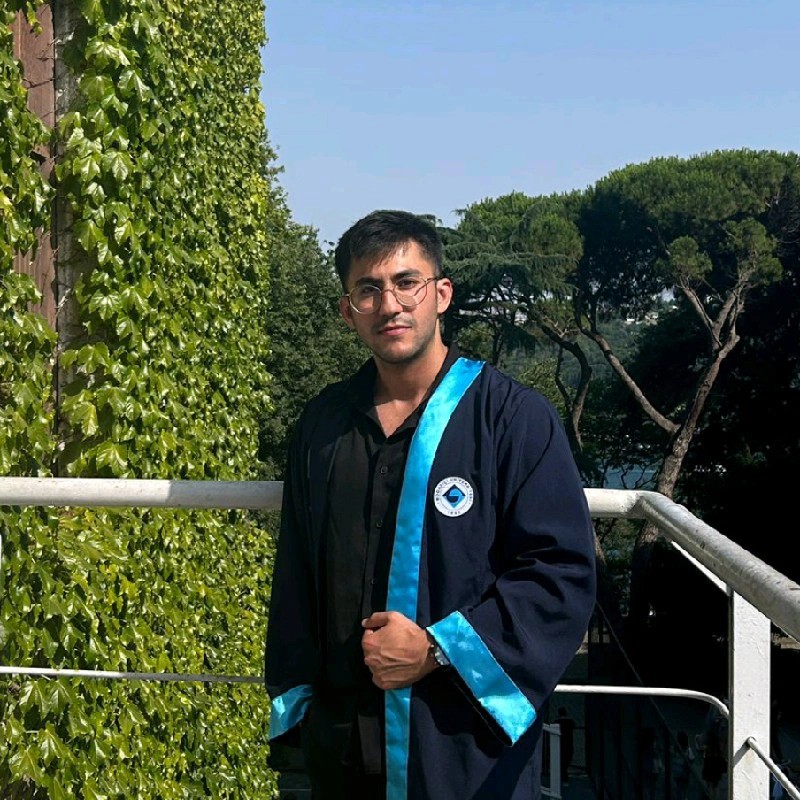
- Age: 25
- from Istanbul, Turkey
- Double major in Chemistry and Physics at Boğaziçi University (2024)
Yiğit Ertan
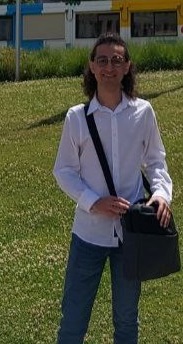
- Age: 25
- From Izmir, Turkey
- Bachelor's degree in Chemistry at Boğaziçi University
- Currently pursuing a master's degree at Boğaziçi University